Littlewoods: A tale of sisterhood, camaraderie, and friendship
- Published

In its heyday Littlewoods employed 30,000 people
A new exhibition looking at life working for the Littlewoods football pools and catalogue business has opened in Liverpool.
Littlewoods was founded by brothers John and Cecil Moores over 100 years ago.
At its peak it employed thousands of people and was renowned for looking after its employees.
The exhibition at the Museum of Liverpool also looks at how the business influenced the city.
From the humble beginnings of the Football Pools in 1923 to the evolution of mail order catalogues and retail stores, Littlewoods became a household name beyond Liverpool.
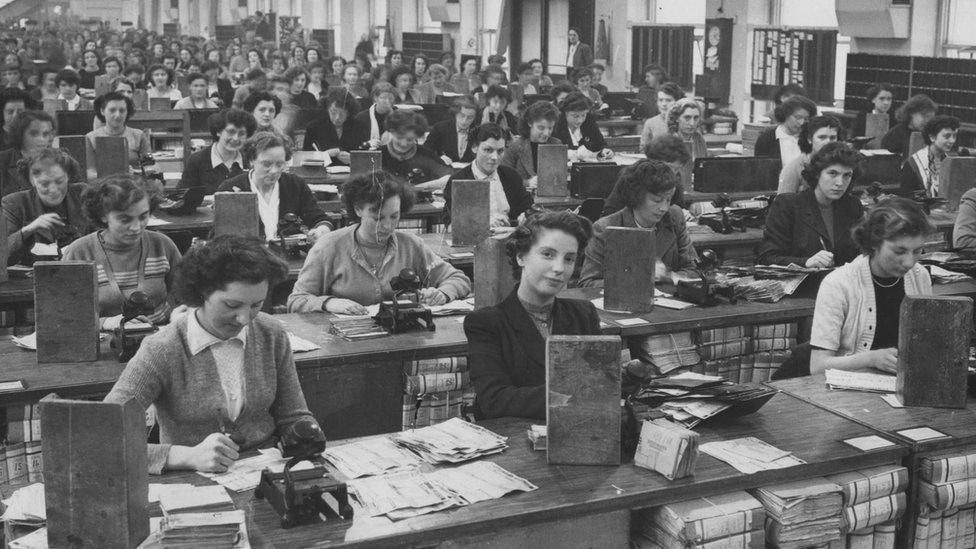
The company was renowned for creating good working conditions for staff
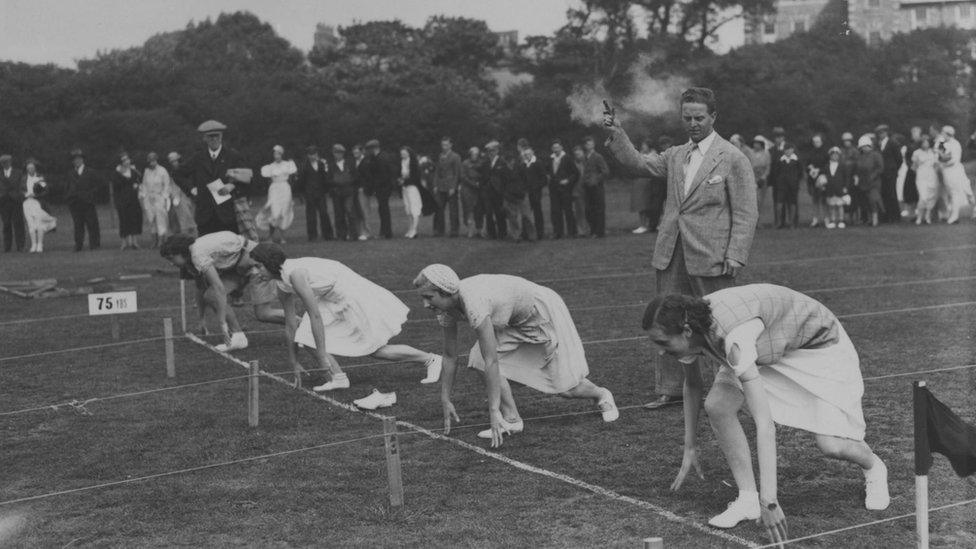
John Moores firing the starting gun at company Sports Day in 1930
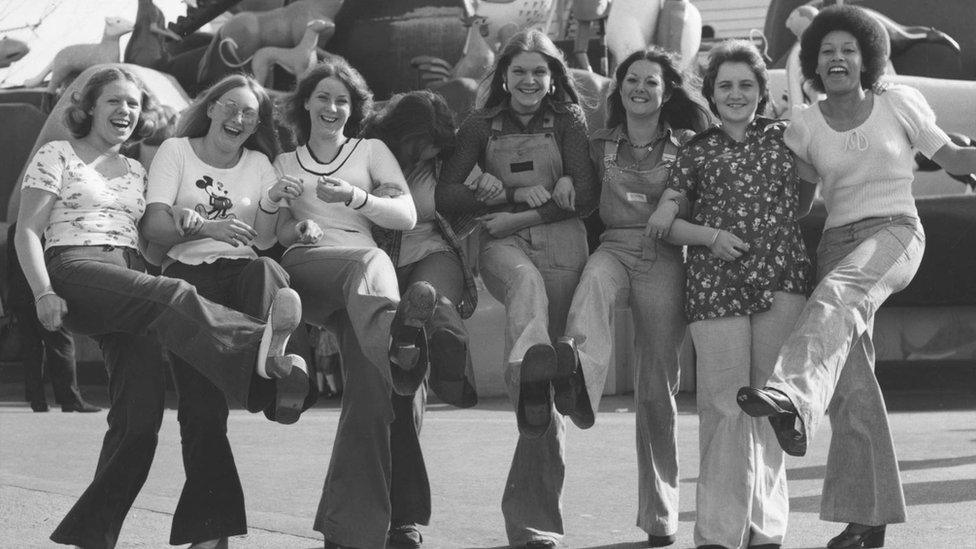
The company would take organise regular staff outings
Dr Ruth Doughty of LJMU, who has spent five years researching the company's history, said she wanted to ensure the legacy of Littlewood's lived on.
"The Moores brothers were so progressive. They were so ahead of their time," she said.
"The workforce was mainly women and in their heyday they had 30,000 people employed for Littlewoods.
"It was amazing for the women of Liverpool. Rather than be cleaners or cooks or face the dangers of textiles factories, Littlewoods offered women the chance to earn one of the highest wages safely, and their pride in being a 'Littlewoodie' played a big part in the company's commercial success."
She said her research had unearthed "amazing tales of sisterhood, camaraderie, and friendships that continue to this day".
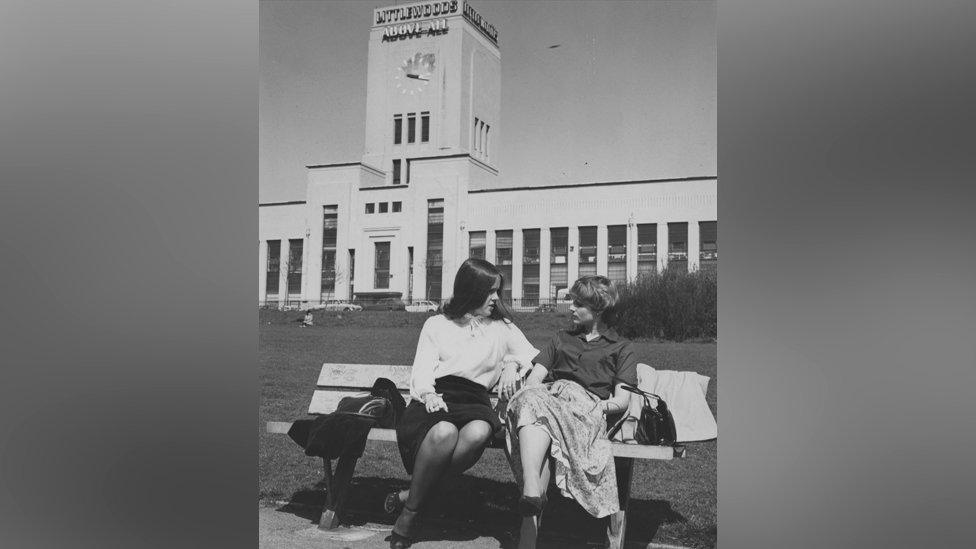
Littlewoods employed mainly women, Dr Ruth Doughty of LJMU said
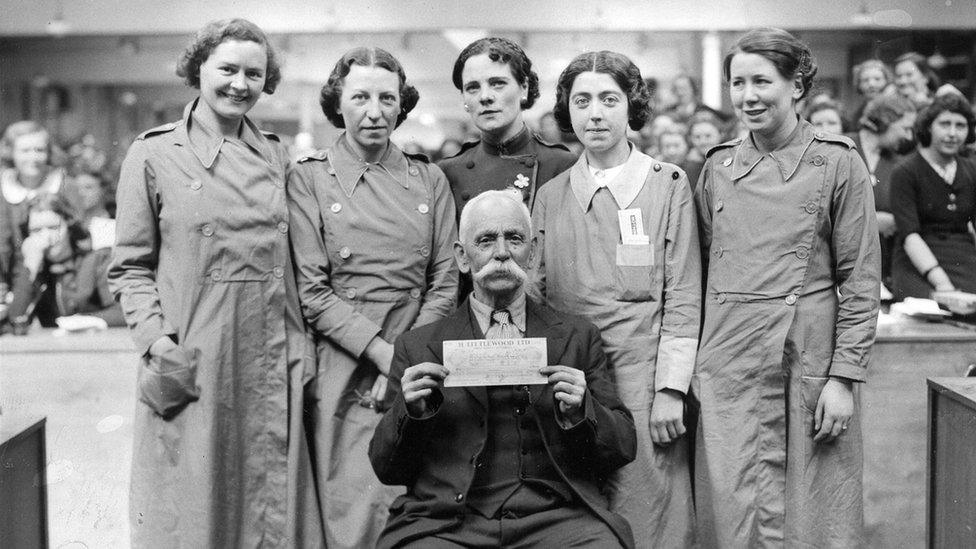
Staff at Littlewoods were part of a 'great big family', former workers said
Malcolm Spargo, who started working at the company in 1971 as a catering manager, went on to become the company's group catering controller.
"I think it's absolutely wonderful that we remember this company, which was so important to Liverpool," he said.
"Liverpool was part of Littlewoods' DNA."
He recalled how Cecil Moores, known as "the chief", was regularly seen walking through the pools building.
"He really wanted to look after all his staff and of course we had wonderful welfare facilities and great canteen facilities," he said, adding that the way the staff were looked after made them very loyal to the firm.
"It was such a wonderful place to work and anyone who actually worked in Littlewoods always said it was the best years of their life."
Dr Doughty added that the company was among the first to think about equal opportunities, working with disabled charities and running a business access programme for young black people.
"Not only did they pay the best wage in Liverpool, but they also treated staff to day trips and gave them the chance to join in-house sports teams, choirs and amateur dramatic groups."
Sharon Brown, Curator of Land, Transport, Work and Industry at the Museum of Liverpool said the display was "a nostalgic look at one of Liverpool's best-known companies".
Work to transform the landmark Littlewoods building into a film studio and production hub started in December.
The exhibition runs until 28 April.

Why not follow BBC North West on Facebook, external, X, external and Instagram, external? You can also send story ideas to northwest.newsonline@bbc.co.uk, external
Related topics
- Published12 December 2023
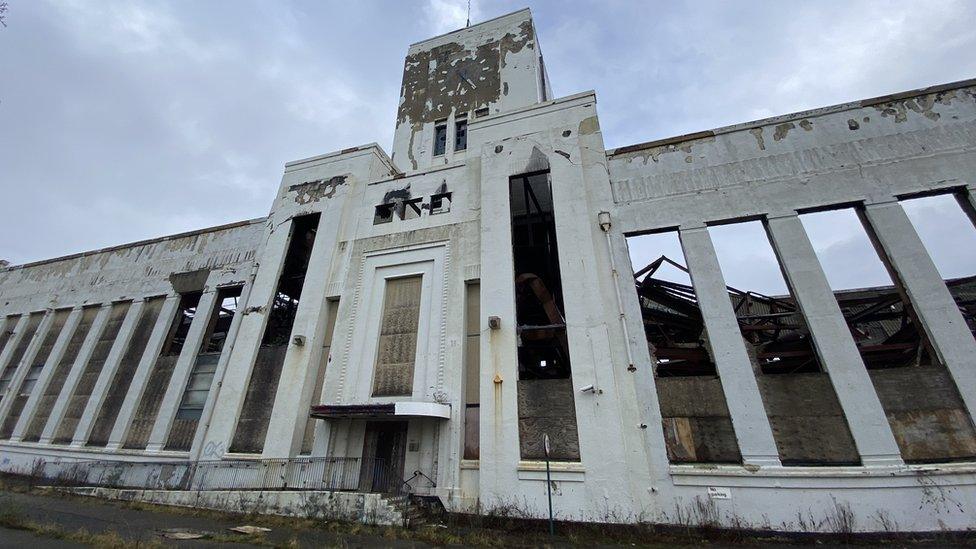
- Published7 December 2023

- Published16 June 2023

- Published2 December 2022
